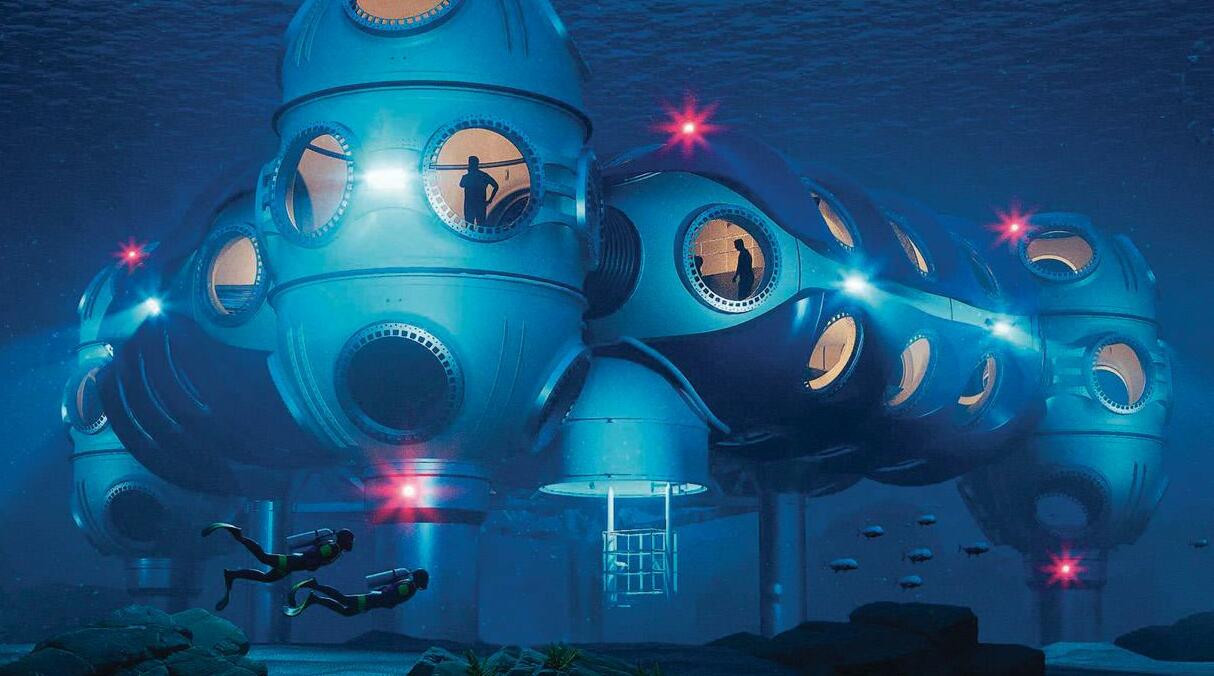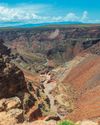Try GOLD - Free
GOING DEEP
BBC Science Focus
|March 2025
An advanced new research station is being developed to explore the potential for a human settlement under the ocean
-

Whether it’s to escape environmental collapse or to explore new, unknown territories, the drive to establish human colonies in places other than on Earth has been gaining momentum in recent years. And while proposed bases on the Moon or Mars might get all the headlines, there’s another equally hostile and largely unknown location a lot closer to home that explorers are also looking towards: the bottom of the ocean.
This is by no means a new idea. Starting with French oceanographer Jacques Cousteau in the 1960s, people have been building and spending limited amounts of time in underwater habitats for decades. More recently, NASA has been sending people to the Aquarius Reef Base, a research facility on the ocean floor just off the coast of Florida, since 2001. Located 20m (approx 65ft) below the surface, scientists, engineers and prospective astronauts typically spend 7–14 days in the module.
New technology is making the prospect of longer-duration stays underwater possible, though, and British company, Deep, is employing it to develop habitats specifically for that purpose. The tech may be up to the task, but the real question is, are we?
ABOVE THE ATMOSPHERE, BELOW THE SEA
Humans are relatively weak. We don’t do well without oxygen or sunlight, and we’re not big fans of major changes in pressure. In other words, we’re not necessarily the best candidates for life at the bottom of the sea.
This story is from the March 2025 edition of BBC Science Focus.
Subscribe to Magzter GOLD to access thousands of curated premium stories, and 9,500+ magazines and newspapers.
Already a subscriber? Sign In
MORE STORIES FROM BBC Science Focus

BBC Science Focus
HOW DO I KNOW WHEN TO LET GO OF PAST GOALS OR DREAMS?
Many of us harbour deep ambitions that are an essential part of how we see ourselves - perhaps you fantasised about becoming a successful novelist or professional athlete, or to settle down and start a family.
1 min
Summer 2025
BBC Science Focus
HOTTER THAN THE SURFACE OF A STAR
KELT-9 b
1 min
Summer 2025

BBC Science Focus
These are the worst ChatGPT prompts for the environment, study claims
Politeness perhaps does have a cost, as far as the planet's concerned
1 mins
Summer 2025

BBC Science Focus
HOW SHOULD YOU TALK TO SOMEONE WHO HAS JUST LOST A LOVED ONE?
Suffering a bereavement is one of the hardest experiences anyone can go through in life. Receiving love and support from others can make a huge difference, so it's wonderful that you want to be there for someone who's grieving and that you're thinking carefully about how to help them.
2 mins
Summer 2025
BBC Science Focus
Mysterious 'surge' under Earth's crust could reshape world map, study claims
The pulsing will eventually rip Africa apart and create a new ocean
2 mins
Summer 2025

BBC Science Focus
Our meat could soon be gene-edited. Should we be worried?
Genetically edited pork could be on the market within a year. Here's what you need to know
5 mins
Summer 2025

BBC Science Focus
Mysterious 'surge' under Earth's crust could reshape world map, study claims
The pulsing will eventually rip Africa apart and create a new ocean
2 mins
Summer 2025
BBC Science Focus
EYES ON THE PRIZE
A strange visual trick can speed up learning and boost performance
3 mins
Summer 2025

BBC Science Focus
Can you live longer by eating less?
From fasting to low-protein diets, the evolving science of dietary restriction might just offer the key to slowing ageing
6 mins
Summer 2025

BBC Science Focus
6 SCIENCE-BACKED WAYS TO IMPROVE YOUR MEMORY
Forgetfulness doesn't have to be an inevitable part of life. Like going to the gym to stay fit, there are habits you can adopt to keep your memory sharp
8 mins
Summer 2025
